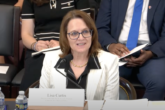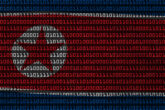March 07, 2019
Summit Datebook 2: After Hanoi, relieved but still curious
Kim Jong Un undisputedly won the first round of summitry in Singapore last June. He was masterful at playing US President Donald Trump by pocketing a key American bargaining chip—a halt to defensive US-South Korean military exercises—without having to deliver substantive denuclearization steps. He also succeeded because his negotiators essentially compelled Washington to accept Pyongyang’s preferred language and sequence in their joint Singapore statement.
The Hanoi round was a drastically different outcome. This time, Trump checked Kim, who went home without a substantive win. (He still earned points for elevating his international profile.) North Korean Vice Foreign Minister Choe Son Hui told journalists in Hanoi that her boss seemed puzzled, unable to understand the American style of bargaining (or “calculation methods” in Korean). Rumors on the streets of Hanoi whispered about an upset North Korean leader who refused to leave his hotel room for hours and wanted to cancel the rest of this trip but could not leave Vietnam because his train was being serviced. Perhaps Kim underestimated his ability this time to manipulate a Korea-ignorant Trump into accepting what the North called its “best offer…at this stage.” Perhaps Kim believed the American president was already in his back pocket because of Trump’s public pronouncement of “falling in love.” Perhaps someone on his negotiating team will be replaced, or worse, purged.
After the Singapore summit, North Korea tried to bypass the senior and working levels of US negotiators—what it called “headwinds,” meaning Secretary of State Mike Pompeo and his staff—to strike a deal directly with Trump. But perhaps Pyongyang underestimated the American headwinds’ ability to educate their boss in a manner that actually registered. It appears that Kim Jong Un might have learned the hard way what it is like dealing directly with both Trump and the United States diplomatic apparatus—each of which presents a mixed bag of cultural, political, ideological, psychological, and personality traits and differences.
Read the full article in the Bulletin of the Atomic Scientists.
More from CNAS
-
Assessing the Terror Threat Landscape in South and Central Asia and Examining Opportunities for Cooperation
Watch...
By Lisa Curtis
-
Indo-Pacific Security / Energy, Economics & Security
What Will North Korean Cybercrime Look Like in 2022?North Korean hackers will likely continue to employ more phishing campaigns in the future while tailoring their level of obfuscation based on the target’s sophistication....
By Jason Bartlett
-
Duyeon Kim testifies before European Parliament's Committee on Foreign Affairs
Chairman McAllister, Vice Chairs, DKOR Chairman Mandl, and distinguished Members of the Committee on Foreign Affairs and the European Parliament, thank you for the opportunity...
By Dr. Duyeon Kim
-
China’s New Land Borders Law Is a Nightmare for North Korean Refugees
A combination of high-level pressure from foreign governments and steady support for grassroots refugee resettlement organizations and programs is the most practical way to as...
By Jason Bartlett


